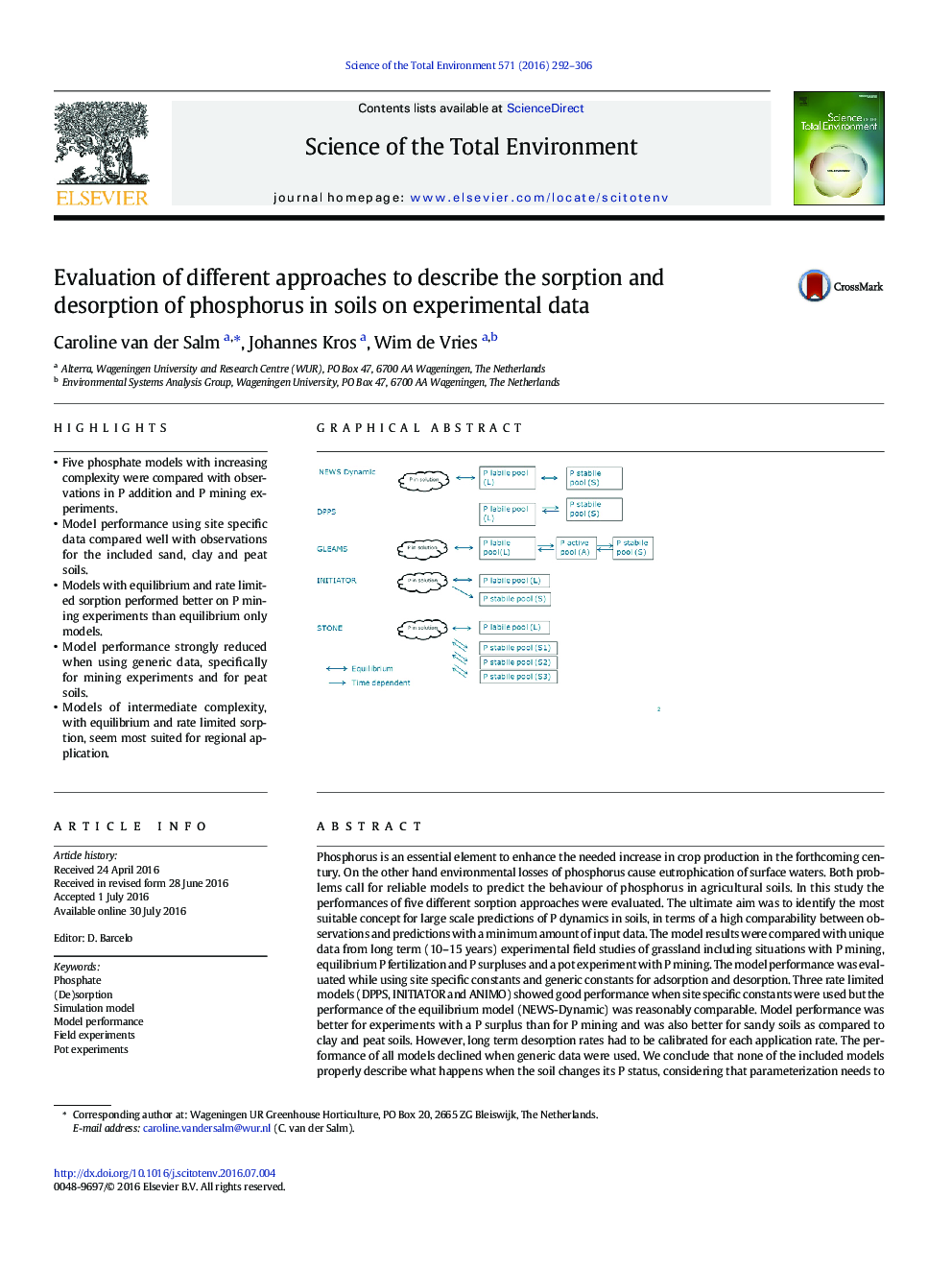| کد مقاله | کد نشریه | سال انتشار | مقاله انگلیسی | نسخه تمام متن |
|---|---|---|---|---|
| 6320363 | 1619720 | 2016 | 15 صفحه PDF | دانلود رایگان |
- Five phosphate models with increasing complexity were compared with observations in P addition and P mining experiments.
- Model performance using site specific data compared well with observations for the included sand, clay and peat soils.
- Models with equilibrium and rate limited sorption performed better on P mining experiments than equilibrium only models.
- Model performance strongly reduced when using generic data, specifically for mining experiments and for peat soils.
- Models of intermediate complexity, with equilibrium and rate limited sorption, seem most suited for regional application.
Phosphorus is an essential element to enhance the needed increase in crop production in the forthcoming century. On the other hand environmental losses of phosphorus cause eutrophication of surface waters. Both problems call for reliable models to predict the behaviour of phosphorus in agricultural soils. In this study the performances of five different sorption approaches were evaluated. The ultimate aim was to identify the most suitable concept for large scale predictions of P dynamics in soils, in terms of a high comparability between observations and predictions with a minimum amount of input data. The model results were compared with unique data from long term (10-15Â years) experimental field studies of grassland including situations with P mining, equilibrium P fertilization and P surpluses and a pot experiment with P mining. The model performance was evaluated while using site specific constants and generic constants for adsorption and desorption. Three rate limited models (DPPS, INITIATOR and ANIMO) showed good performance when site specific constants were used but the performance of the equilibrium model (NEWS-Dynamic) was reasonably comparable. Model performance was better for experiments with a P surplus than for P mining and was also better for sandy soils as compared to clay and peat soils. However, long term desorption rates had to be calibrated for each application rate. The performance of all models declined when generic data were used. We conclude that none of the included models properly describe what happens when the soil changes its P status, considering that parameterization needs to be treatment-specific to obtain reliable predictions. Considering this flaw, models of intermediate complexity, including both equilibrium and rate limited sorption, and a limited data demand, like DPPS and INITIATOR, seem most suited for regional model application.
123
Journal: Science of The Total Environment - Volume 571, 15 November 2016, Pages 292-306
